Government formation talks: What you need to know so far

Fianna Fáil leader Micheál Martin and Fine Gael leader Simon Harris. Photo: Sasko Lazarov / © RollingNews.ie
There was a moment of minor levity on the Sunday night of the general election count.
Going on for 10pm, after two long days in the Nemo Rangers count centre, a shared laugh that seemed to augur well for the likely shape of the next government.
Returning officer Martin Harvey had just declared all five of the Cork South Central TDs elected — TDs are only deemed elected as seats are filled and, once all seats are filled and any recounts are concluded, then they are declared elected, after which point only an election petition to the High Court can challenge the result.
There was a certain giddy relief in the air in Nemo as the second day’s count came to a conclusion in Cork South Central, even if — although we didn’t know it at the time — those of us on the northside were facing into another day in the count centre, with a call for a full recount just around the corner of midnight for Cork North Central.

That request from outgoing People Before Profit-Solidarity TD Mick Barry’s would be granted by the returning officer, and the recount would last from 10am on Monday morning until around 4pm, when the 35-seat gap between him and Labour’s Eoghan Kenny would actually be increased by four votes and Mick would concede defeat.
At that point, all five Cork North Central TDs would be declared elected and Eoghan Kenny would become the youngest TD in the 34th Dáil.
Then, depending on the way you looked at it, the Labour Party would either reclaim the northside seat it had lost to PBP in the fallout from its time in the austerity coalition with Fine Gael, or — from another perspective — Seán Sherlock’s Mallow seat would be held by a new generation as the North Cork town was swallowed up by the city in the redrawing of Cork North Central’s constituency bounds.

However, that drama was still in the future on Sunday night, as poll-topper and Fianna Fáil leader Micheál Martin took to the podium and offered his congratulations to his fellow Cork South-Central TDs: his Fianna Fáil colleague Seamus McGrath, Sinn Féin’s Donnchadh Ó Laoghaire, Fine Gael’s Jerry Buttimer, and the Social Democrats’ Pádraig Rice.
“I know we will all co-operate and work together in the interests of the people of Cork South Central, in the interests of the people of Cork, and indeed in the interests of the people of the nation,” he said.
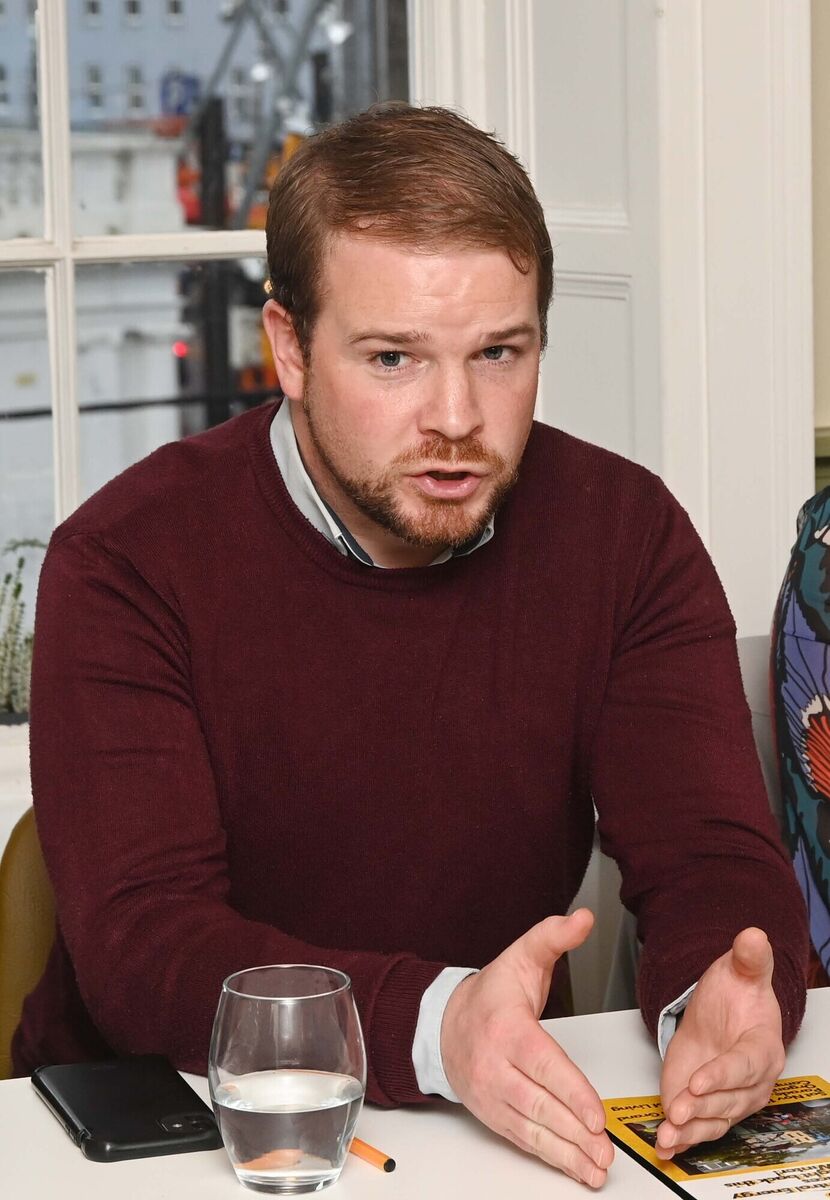
At the back of the hall, one journalist muttered: “We won’t be long seeing about that.”
To warm applause, the outgoing Tánaiste thanked election count staff, singling out the returning officer and Bill Ring, who has worked on counts since 1972 (who had told The Echo that this would probably be his last count) and all of those who had worked for candidates from all political parties and none.
“What we have witnessed today is something that is not possible in [some] other parts of the world, a transparent democracy and the transparent counting of our votes, and the wonderful count staff, who have performed their duties with great dignity,” he said.
Taking to the podium, a clearly delighted outgoing Cathaoirleach of the Seanad Jerry Buttimer, again a TD, a role he hadn’t held in eight years, turned to the previous speaker and addressed him as “Taoiseach Tánaiste”.

It wasn’t exactly a moment of high comedy, but Micheál got a smile out of it, and at the back of the hall Mary Rose Desmond, Fianna Fáil councillor and consigliere, shared a good laugh with Aoibhe Martin, the Taoiseach Tánaiste’s daughter.
Relations between the two Civil War parties have come a long way since Garret Fitzgerald accused Charles Haughey of a “flawed pedigree”, back in the days the two parties commanded between them 80% of the vote.
These days, when they barely have half of that (and are down about 10% in under a decade), the two old enemies have been, in the eight years since the confidence-and-supply deal of 2016, in the words of former Bertie Ahern advisor Gerard Howlin, “in coalition or cahoots”.
Indeed, to personalise things for a moment, relations between Jerry Buttimer and Micheál Martin seemed so cordial in the lead-in to the election that some journalists pretended to be worried that Jerry might switch sides, so often was he spotted standing beside Micheál at photo opportunities.
As we saw during the election just completed, they may now not precisely be enemies anymore, but they are definitely rivals when it comes to seats.
Fianna Fáil had by far the best election, led from the front by Micheál Martin, a man who absolutely loves canvassing, and has come out 10 seats ahead of Fine Gael.
Fianna Fáil won’t forget that before the election some of the Harris Hoppers were briefing that they might get so many seats they might be in a position to forego the unpleasantness of rotating the Taoiseach’s office.
It was a pretty poor election campaign by Fine Gael, in which — with more than half of their outgoing TDs not standing for re-election — the party opted for a presidential-style approach that brought Simon Harris to every parish pump and cattle mart in the country, leaving him so tired and ratty by the time he got to Kanturk that he turned his back on disability care worker Charlotte Fallon, and worse, did it in front of cameras.
During the campaign, out of sheer divilment, this reporter put it to a few Sinn Féin representatives that while in 2020 Fianna Fáil and Fine Gael had been aiming all their fire at the Shinners, now they were knocking lumps out of each other instead.
Did this mean Sinn Féin was now seen as something of a depleted force and a political irrelevance?
The touchpaper having been lit, fireworks predictably ensued.
“Nonsense”, came back the outraged and uniform response, this was all just a phoney war, because the Civil War parties who had destroyed the country for a century, etc, etc, couldn’t debate Sinn Féin on the real issues facing people, homelessness, the cost of living, waiting lists, disability services, and all the other ills facing Irish society.
So depleted force or phoney war? There’s no reason both answers couldn’t have been right, of course, and despite Mary Lou McDonald’s Trumpian declaration of victory on the day after the election, when she announced that her party had been given “a powerful and strong mandate”, Sinn Féin had a bad election.
The party finished third in the popular vote, down 5.5% in first preferences on the party’s 2020 result, and well short of expectations — founded on successive opinion polls — of massive seat gains.
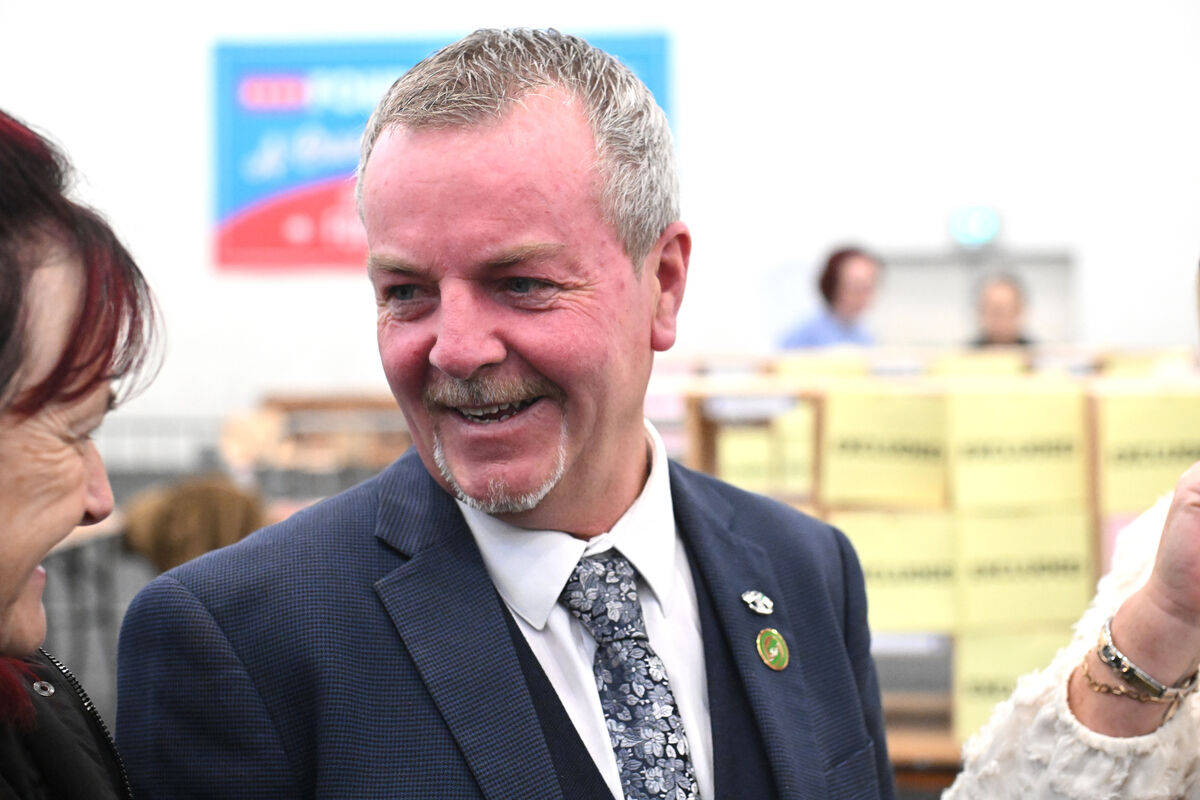
In Cork East, Pat Buckley went from 23% of first preferences in 2020 to 13.7% this time out. In Cork North Central, Thomas Gould went from 27% of first preferences in 2020 to 17.4% in 2024, while in Cork South Central, Donnchadh Ó Laoghaire went from 24.6% in 2020 to 15.4% in 2024.
Still, the party gained two seats, and the fact that the result wasn’t even worse — given the multiple scandals which erupted around Sinn Féin in the weeks leading up to the election — is down in no small part to the excellent ground game of some of its TDs, and the genuinely warm rapport the party leader enjoyed with the public out on the campaign trail.
What happens now
So, where do we go from here? Fianna Fáil and Fine Gael have both ruled out coalition with Sinn Féin, and despite noises to the contrary, Sinn Féin clearly isn’t interested in them either.
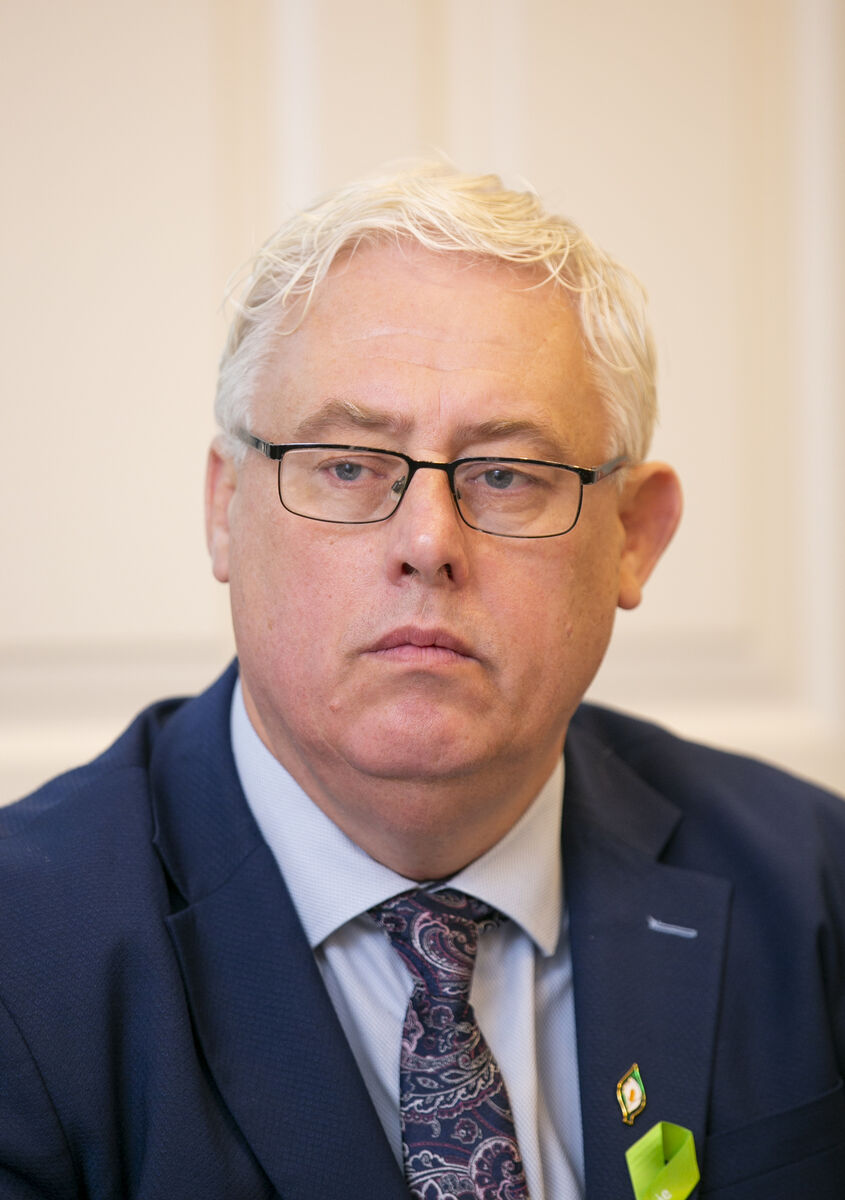
The Civil War parties’ negotiating teams have been in talks since Tuesday, led by respective deputy leaders Jack Chambers and Helen McEntee. With Fianna Fáil having 48 seats and Fine Gael 38, between them they’re two seats shy of a bare majority.
Despite the wooing noises directed toward Labour, there seems to be no chance the party that has spent the past decade trying to rebuild after its last disastrous stint in coalition will go straight back in.
With Fianna Fáil and Fine Gael on 86 seats, Labour’s 11 probably wouldn’t get them more than one cabinet seat.
That’s not much influence to trade against the inevitable hammering they would likely get next time out.
And Labour won’t be too anxious to give their ideological twins and political mortal enemies the Social Democrats a clear run at the opposition benches for the next five years, separated as they are only by personal enmity and the narcissism of small differences.
By the same token, some Labour sources didn’t even try to hide their sheer glee this week when new Soc Dems TD Eoin Hayes was suspended by the party after he admitted he had divested shares in a company which supplied military technology to Israel, in July this year, a month after being elected to Dublin City Council.
The Dublin Bay South TD had previously said he had sold the shares before becoming a public representative.
“If your whole stock in trade is being as holier-than-thou as the Sockies are,” said one old Labour hand this week, “don’t be too surprised if everyone else is just waiting for you to stumble.”
At the time of writing, the newly formed Regional Independents, a nine-member technical group consisting of Michael Lowry, Noel Grealish, Kevin ‘Boxer’ Moran, Seán Canney, Marian Harkin, Verona Murphy, Carol Nolan, Barry Heneghan and Gillian Toole, looks a safe bet to get Fianna Fáil and Fine Gael over the line.
It will be interesting to see if that group gets its preferred candidate, Verona Murphy, elected to the position of ceann comhairle next week.
Fianna Fáil’s John McGuinness and outgoing ceann comhairle Seán Ó Fearghaíl are both believed to be in the running, as is Sinn Féin’s Aengus Ó Snodaigh.
If Verona Murphy is elected in the secret ballot, many will see that as a sign that Fianna Fáil and Fine Gael have their hearts set on the Regional Independents.
Micheál Martin
Then there’s what the future might hold for the man Jerry Buttimer called Taoiseach Tánaiste.
Presumably Micheál Martin will be Taoiseach for the first half of the 34th Dáil — it may be for more than two-and-a-half years that if Fianna Fáil wants to play hardball on their having 10 more seats than Fine Gael, but you’d suspect the Soldiers of Destiny might decide to be gracious on that one just to hold onto an extra Cabinet seat or the like in the trade-off.
Whether he’ll be Tánaiste again is more of an open question.
He’ll be 65 next summer, although he’s fitter than most people a decade his junior, and the general election proved to the poor reporters trying to follow him around that Simon Harris isn’t the only leader powered by Duracell.
Still, with a week a long time in politics, it’s impossible to imagine what mid-2027 might look like for the Taoiseach Tánaiste.
There’s a vacancy coming up in Phoenix Park next November, but the timing isn’t great.
Besides, while there seems little doubt that he would be a good fit for the presidency, would he even want it?
He clearly likes being taoiseach, and for a busy man who doesn’t hang around, it’s hard to see him happy working on his memoirs in the Áras drawing room and meeting the odd tidy towns committee for a garden party.
Government formation talks took months in 2020.
With Donald Trump’s second term beginning on January 20 and with it a chill wind likely aimed in Ireland’s direction, there is a ticking clock on the current negotiations. Expect to see definite progress once the Christmas holidays are out of the way.
Beyond that, who knows? There is a definite sense abroad that we are heading for choppy waters, and the next government, once it is formed, will have its work cut out.
On the Sunday night after the election, Micheál Martin ended his acceptance speech in Nemo Rangers by saying: “The people have spoken. Let us now get on with the work. Go raibh míle maith agaibh go léir.” Indeed.

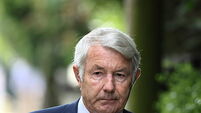




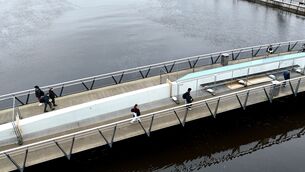



 App?
App?


